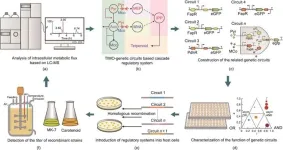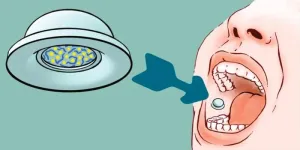(Press-News.org) HOUSTON – (Sept. 28, 2023) – The commercial spaceflight industry is expanding opportunities for scientific research in space, but the industry needs clear ethical guidelines before human research is ready for liftoff. In a new policy paper published in Science, a global, multidisciplinary team of bioethicists, health policy experts, space health researchers, commercial spaceflight professionals and government regulators outlines potential ethical concerns facing the future of commercial space research and provides guiding principles on how to make research increasingly safe and inclusive.
The paper is the result of a workshop held at the Banbury Center of Cold Spring Harbor Laboratory and funded by the Translational Research Institute for Space Health (TRISH) at Baylor College of Medicine, in consultation with researchers from the Center for Medical Ethics and Health Policy at Baylor.
“There are many government-sponsored research missions in space, through NASA and other space agencies around the world, that operate under clear ethical research guidelines. However, few guidelines and best practices exist for conducting responsible research in the commercial sector,” said Dr. Vasiliki Rahimzadeh, first author of the paper and assistant professor at the Center for Medical Ethics and Health Policy. “Now is the time to develop that ethical framework, and it must be a multidisciplinary effort across the private and public sectors.”
In the paper, the team proposes ethical guidelines for commercial space research based on four principles: social responsibility of research participants, scientific excellence in gathering research data, proportionality in balancing risks of spaceflight, and global stewardship in diverse participation. The authors also outline the need for adapting existing research practices and policies to commercial space flight, including informed consent, data protection and steps to minimize health risks to participants.
“What we learn in space health research is incredibly important not only for future spaceflight but also for informing health issues on Earth,” said Dr. Amy McGuire, corresponding author of the paper and Leon Jaworski Professor of Biomedical Ethics and director of the Center for Medical Ethics and Health Policy at Baylor. “There is potential for great societal benefit from this research, but we must conduct research in a way that is socially and ethically responsible.”
“As we envision a future with more frequent space travel and more commercial spaceflight participants, we need to plan ahead and make scientific research in space as safe and as productive as possible for as many people as possible,” said Dr. Jennifer Fogarty, co-author of the paper, chief scientific officer of TRISH and assistant professor in the Center for Space Medicine at Baylor. “We are fortunate at Baylor to have the strengths of the Center for Medical Ethics and Health Policy, the Center for Space Medicine and TRISH in one place where we can collaborate, lead these conversations on astroethics and help shape and impact the next frontier of healthcare.”
This work is supported by the Translational Research Institute for Space Health through NASA Cooperative Agreement NNX16AO69A. For a full list of paper authors and affiliations, see the publication.
# # #
END
Cleared to launch? Ethical guidelines needed for human research in commercial spaceflight
2023-09-28
ELSE PRESS RELEASES FROM THIS DATE:
Genome-wide study of staghorn coral identifies genomic markers of disease resistance
2023-09-28
A genome-wide survey of highly endangered staghorn coral in the Caribbean has identified 10 genomic regions associated with resilience against white band disease – an emergent infectious disease responsible for killing up to 95% of Caribbean Acropora species, including staghorn corals (A. cervicornis). The findings could be used as a conservation tool to improve disease resistance in the wild and nursery stocks of staghorn corals used to repopulate damaged coral reefs throughout Caribbean waters. Over the last several decades, Earth’s reef corals have experienced unprecedented declines. Increased anthropogenic ...
Uncovered: the source of sticking power and virulence for an emerging fungal pathogen
2023-09-28
A previously uncharacterized adhesin protein specific to a human fungal pathogen first discovered in 2009 plays a crucial role in the fungus’s ability to colonize a variety of living and non-living surfaces, and in its virulence, according to a new study. “These findings [about Candida auris] offer insight into the genetics and molecular mechanisms by which [this fungus] mediates surface association, a trait critical to the increasing disease burden of this emerging pathogen,” write the authors. Since its first discovery in 2009, C. auris has become increasingly responsible for life-threatening infections in health care facilities worldwide. Outbreaks of ...
Science News Special Issue: Heat and Health
2023-09-28
From long-frozen and potentially dangerous pathogens awakening in Arctic permafrost to emerging heat-related hazards in human pregnancy, ongoing climate change presents new challenges for human health. In this Special Issue, Science’s News Department offers a collection of five news stories highlighting several facets of the complex intersection between heat, disease, and human health and the researchers seeking to understand related emerging threats.
In one Feature, Science Correspondent Kai Kupferschmidt discusses ...
Innovative approach reveals environmental mechanisms of the end-Cretaceous extinction
2023-09-28
A novel approach to a question that’s been widely investigated reveals more insights about the environmental forcings associated with the end-Cretaceous mass extinction, suggesting that volcanism and other biological changes imparted stress on the global carbon cycle across the Cretaceous/Paleogene (K/Pg) boundary. In addition to providing new insights into the factors that contributed to extinction, the approach could be useful in disentangling other complex perturbations in the Earth system and their associated climatic and biological impacts. The end-Cretaceous mass ...
Ethical guidelines needed before human research in commercial spaceflight is ready for liftoff
2023-09-28
A global, multidisciplinary team of bioethicists, health policy experts, commercial spaceflight professionals and space health researchers, including Rachael Seidler from the University of Florida, has developed guiding principles and best practices to help ensure human research conducted in space is safe and inclusive.
The proposed ethical guidelines were released Friday in a policy paper published in Science and are the result of a workshop held at the Banbury Center of Cold Spring Harbor Laboratory funded by the Translational ...
Van Andel Institute chief scientist earns $7.9 million Outstanding Investigator Award to support cancer research
2023-09-28
GRAND RAPIDS, Mich. (September 28, 2023) — Van Andel Institute Chief Scientific Officer Peter A. Jones, Ph.D., D.Sc. (hon), has received a seven-year, nearly $7.9 million grant from the National Cancer Institute’s Outstanding Investigator Award program. The funding will fuel his research into the epigenetic errors that drive cancer development — and help him find ways to fix them.
The award is a renewal of an earlier seven-year, $7.8 million Outstanding Investigator Award granted to Jones in 2017. The National Cancer Institute, a part of the National Institutes of Health, launched the Outstanding Investigator Award program in 2014 to support “investigators with ...
NUTRITION 2024 makes its way to Chicago
2023-09-28
Rockville, MD (September 28, 2023) – The American Society for Nutrition (ASN) announced today that its annual meeting, NUTRITION 2024, will take place in Chicago, Illinois, June 29 - July 2, 2024. NUTRITION 2024 is the premier meeting for the nutrition community, exploring developments in clinical and translational nutrition, food science and systems, diet and disease, basic science, global health, and more. Nutrition scientists are invited to share their research and join together with clinicians, policy experts, industry, and the media to network and learn for 3.5 exciting days in Chicago.
"I look forward to being together with the best in our field. From groundbreaking ...
Innovative approach unveiled: Boosting terpenoid bioproduction via remodeling of isoprene pyrophosphate metabolism
2023-09-28
Terpenoids, the largest family of natural products, have gained significant attention for their diverse applications in industries such as pharmaceuticals, fragrances, and biofuels. However, the efficient synthesis of terpenoids using engineered cell factories has been hindered by the limited supply of isoprene pyrophosphate (IPP), the key building block for terpenoid production. Now, a research team led by Jian Chen at Jiangnan University in China has made a groundbreaking discovery that could revolutionize terpenoid bioproduction.
In their research article published in the journal Engineering, Chen and his team unveil a novel approach to address the challenge of insufficient IPP ...
The University of Manchester secures major bioscience funding to harness the activity of microbiomes for a more sustainable future
2023-09-28
Scientists at The University of Manchester are set to receive a multi-million-pound grant to advance our understanding of interactions in microbiomes and how they might impact the world around us.
The research, funded by the Biotechnology and Biological Sciences Research Council’s (BBSRC) strategic Longer and Larger (sLoLa) grants programme, takes the first major step towards understanding complex microbial communities and will support the move towards a more sustainable and Net Zero ...
How a suction cup delivers medications to the bloodstream
2023-09-28
Many of today’s medications belong to groups of relatively large molecules such as peptides. They are used to treat a wide range of diseases, including diabetes, obesity and prostate cancer. Unfortunately, taking these medications in tablet form is out of the question in most cases because they would break down in the digestive tract or remain too large to reach the bloodstream. Consequently, the patient’s only option is to receive their medication via injection.
A group of researchers at ETH Zurich have developed ...


